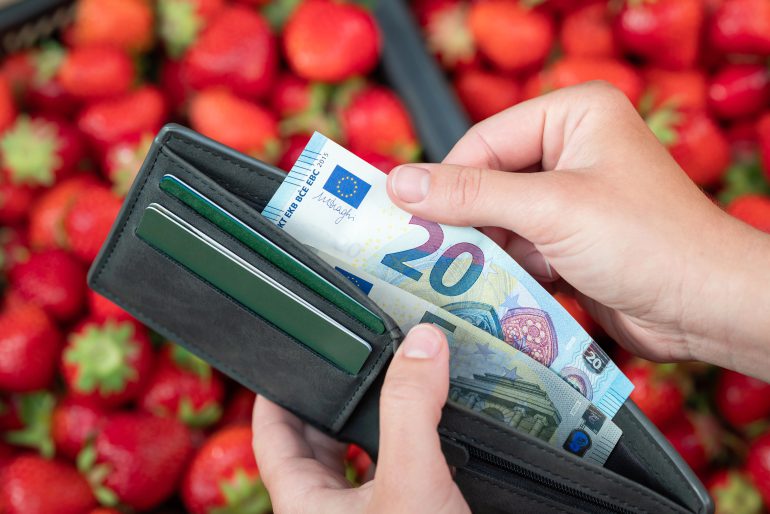Despite recent wage increases in the Netherlands, many Dutch workers feel the financial squeeze as the cost of groceries and other essentials continues to climb. Several recent reports shed light on the growing disparity between income and living expenses, highlighting growing concern among households and economic experts alike.
Although wages have gone up in many sectors over the past two years, 65% of respondents said these raises are entirely offset by increased living costs. Alarmingly, nearly one in five workers reports struggling to make ends meet. Piet Fortuin, CNV chairman, emphasized the urgency: ‘Prices are skyrocketing, and the spectre of inflation has returned. Workers literally need a raise so they can eat,’ he stated, defending the union’s demand for a 3.5% to 6% wage increase. Recent economic data from the national statistics office CBS supports this view. Dutch inflation rate rose to 3.8% in February 2025, up from 3.3% in January. Notably, food, beverage and tobacco prices increased by 7.5% year-on-year.
The financial pressure is prompting people to adopt more budgeting measures: shopping in Belgium or Germany, where prices are lower; reducing their grocery purchases; and lowering energy use at home. According to a survey by CNV trade union, 40% of Dutch workers are cutting back on food shops due to high prices, and 60% are reducing their energy use.
Meanwhile, some sectors have secured notable wage increases: for instance, 125,000 cleaners and window washers will receive a 6.25% raise this year, with another 8.5% planned. However, these improvements are not universal. A study by another major union, FNV, involving 20,000 participants, found that 42% fear falling into debt. About 17% are delaying medical visits, and 6% are even skipping meals.
The Dutch government has acknowledged these concerns. Minister of Economic Affairs Dirk Beljaarts commented: ‘I understand people are shocked by their grocery bills.’ He noted, however, that wages are still rising by a 6.6% average increase in the last quarter, which may offer some relief.
Economists warn that further increases in supermarket prices are likely. Marten van Garderen from ING projects that food prices will rise by several percentage points in 2025, for dairy products in particular. In addition, the prices of cocoa and coffee have been rising rapidly for some time. Factors driving this include higher supplier costs, rising labour and energy expenses, and continuing geopolitical tensions, especially the war in Ukraine, which disrupts grain exports and other agricultural commodities. In addition, higher wages and energy costs also affect prices in the supermarket. Aart van Haren, CEO of supermarket chain Plus, confirmed that many suppliers, both private label and premium brands, are demanding price increases of 5% to 9%, citing inflationary pressures across the supply chain. While some products like coffee and rice have stabilized in price, experts caution that the relief may be temporary. Thijs Geijer, an ING food economist, pointed out that even if food prices plateau, they remain historically high, and rising supermarket labour costs may soon lead to further hikes.
In short, many Dutch households are caught in a difficult situation: wages are rising, but not fast enough to keep pace with inflation. With grocery prices expected to continue climbing, the pressure on purchasing power remains intense, especially for lower- and middle-income workers.
Written by Saskia Roselaar
